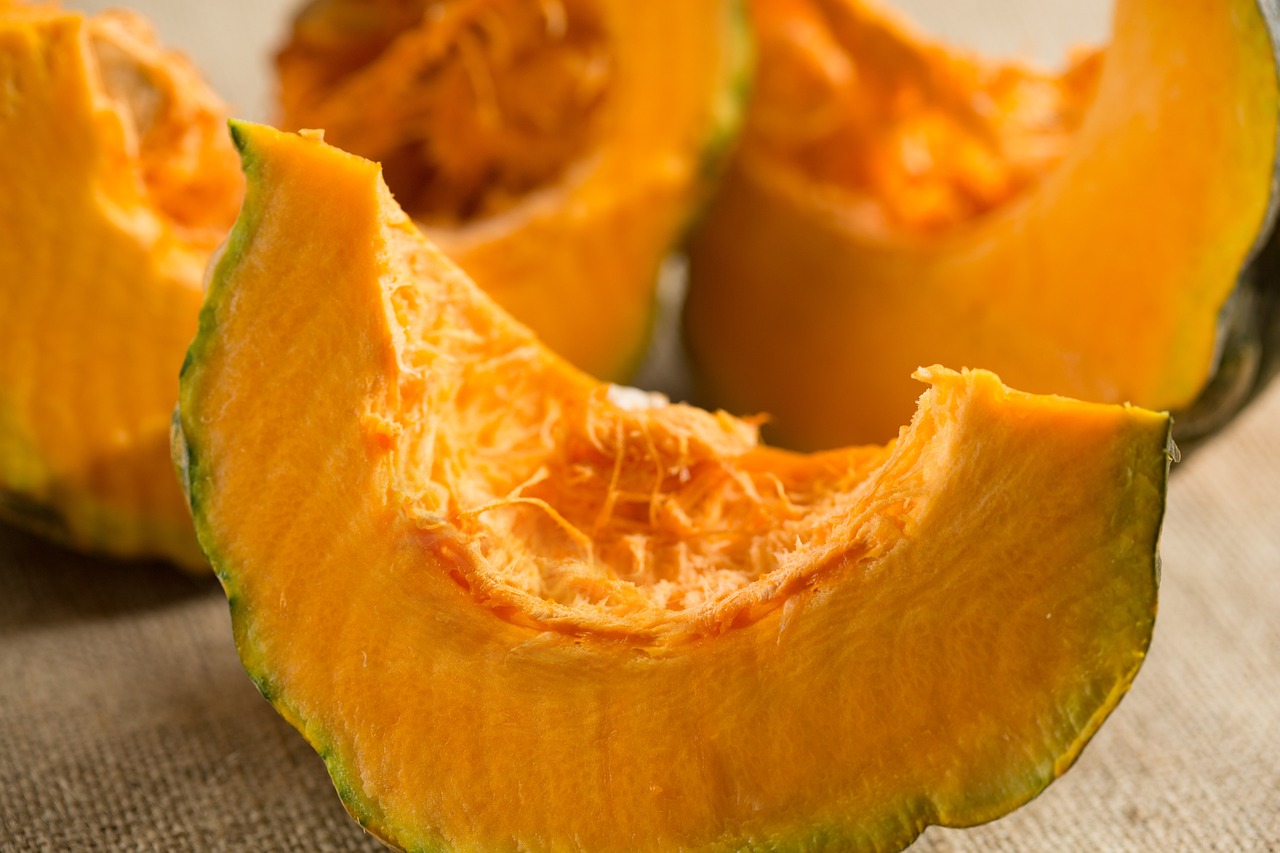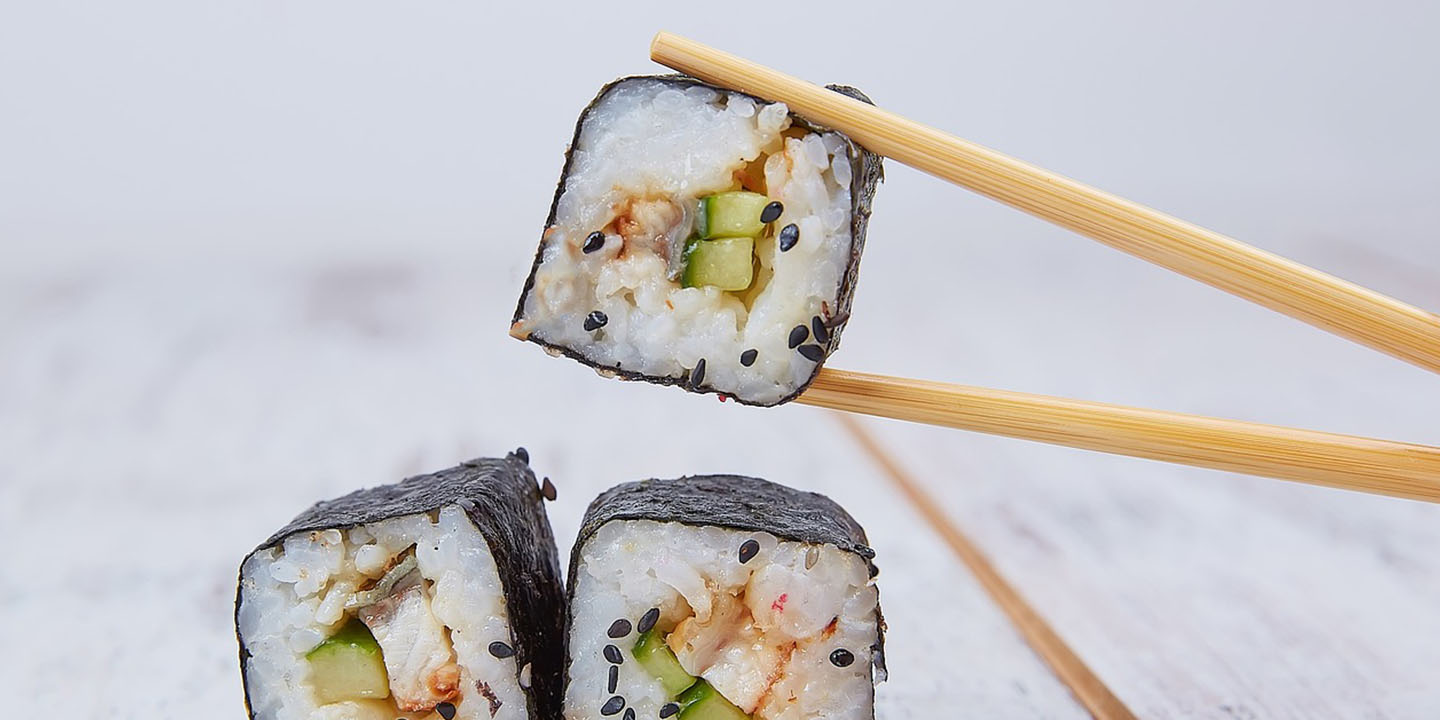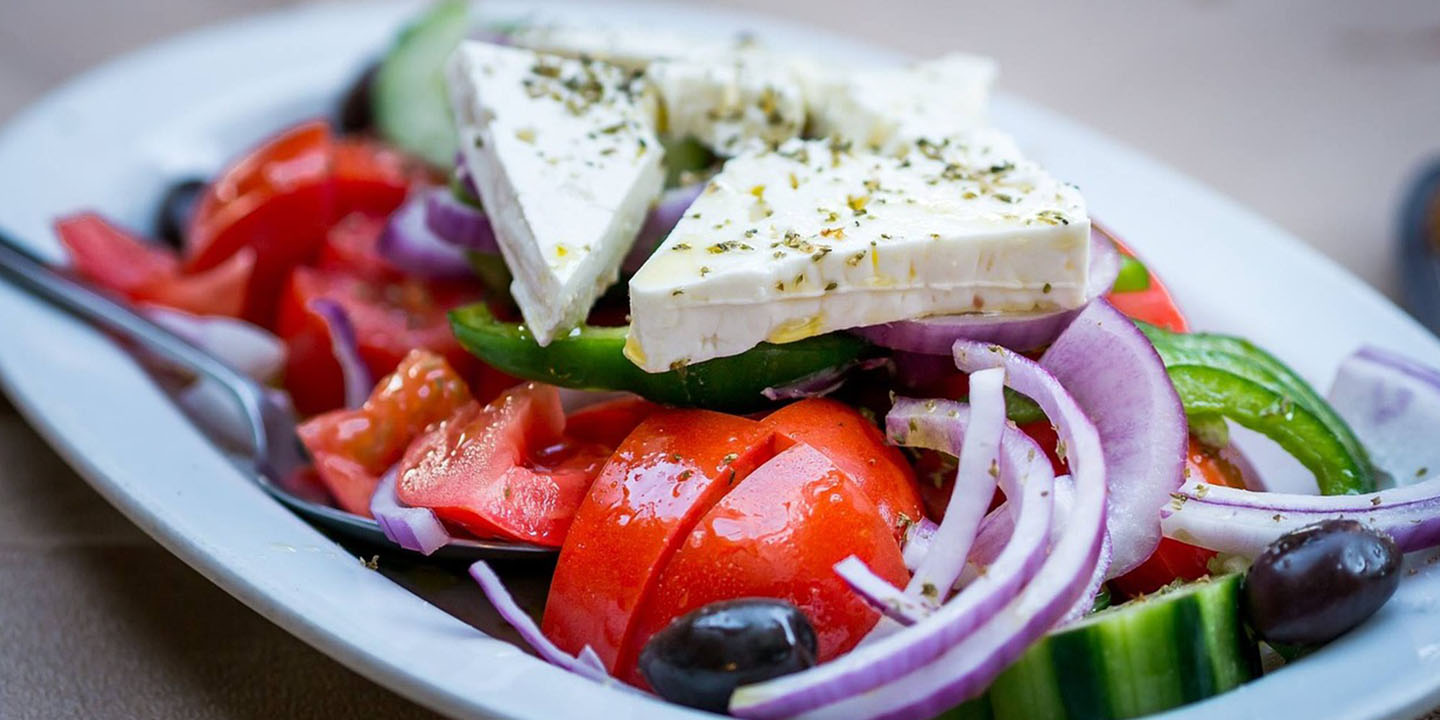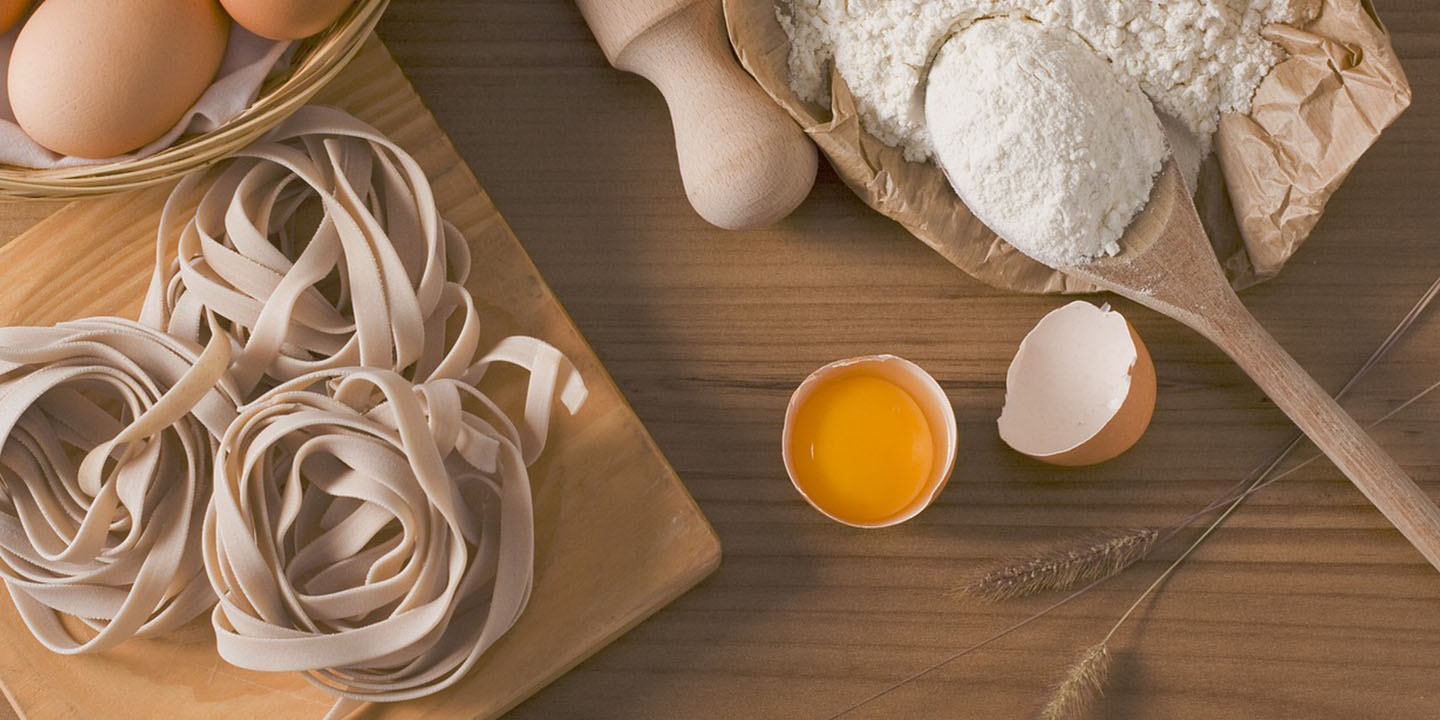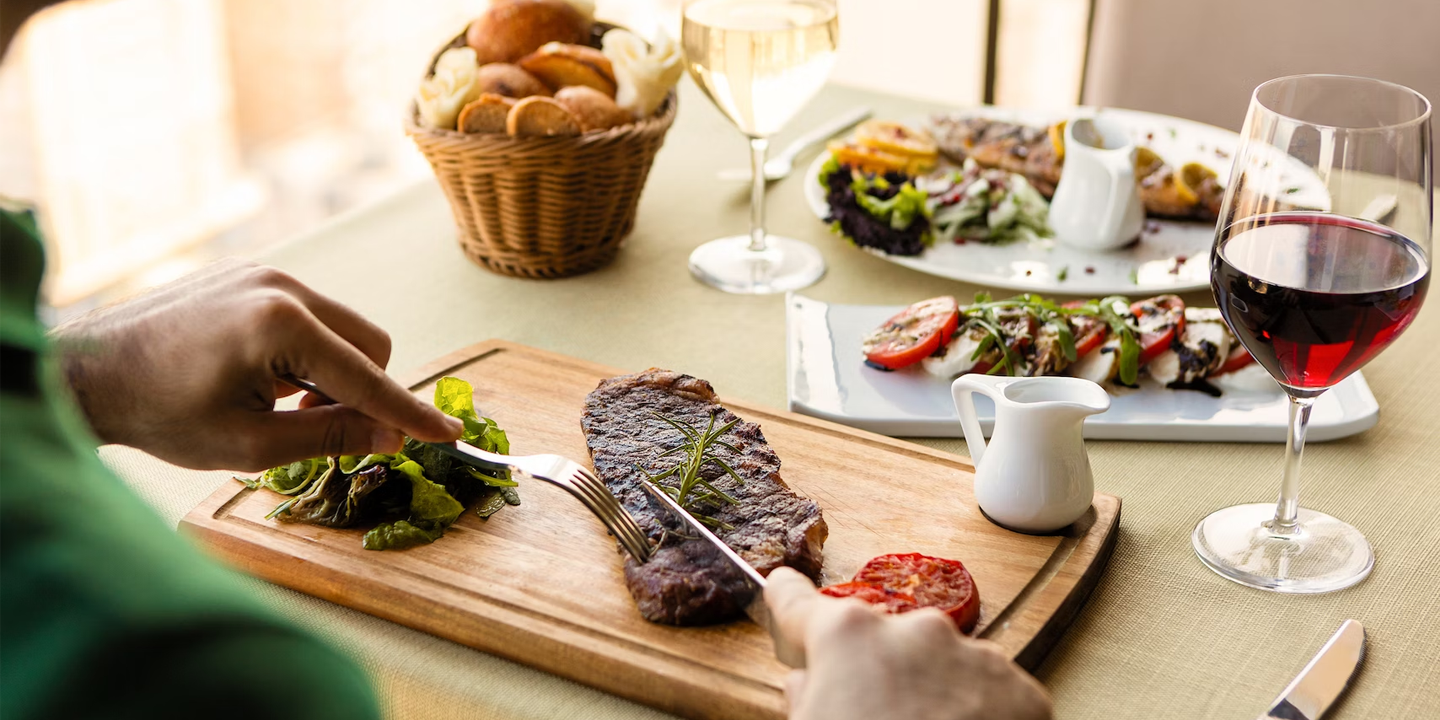When it comes to feeding our furry friends, it's crucial to remember that not all human foods are safe for dogs. In fact, some common items in our pantries and fridges can be downright dangerous for them. While it's tempting to share our snacks and meals with those pleading eyes staring up at us, being informed about which foods to avoid can prevent health issues and even save our pets' lives. Here are 10 common foods that dogs should never have, and why they're harmful.
1. Chocolate
Chocolate is well-known as a no-go for dogs, and for good reason. It contains theobromine and caffeine, two stimulants that dogs cannot metabolize effectively. Even small amounts can cause symptoms like vomiting, diarrhea, rapid breathing, and increased heart rate. In severe cases, chocolate ingestion can lead to seizures and can be fatal.
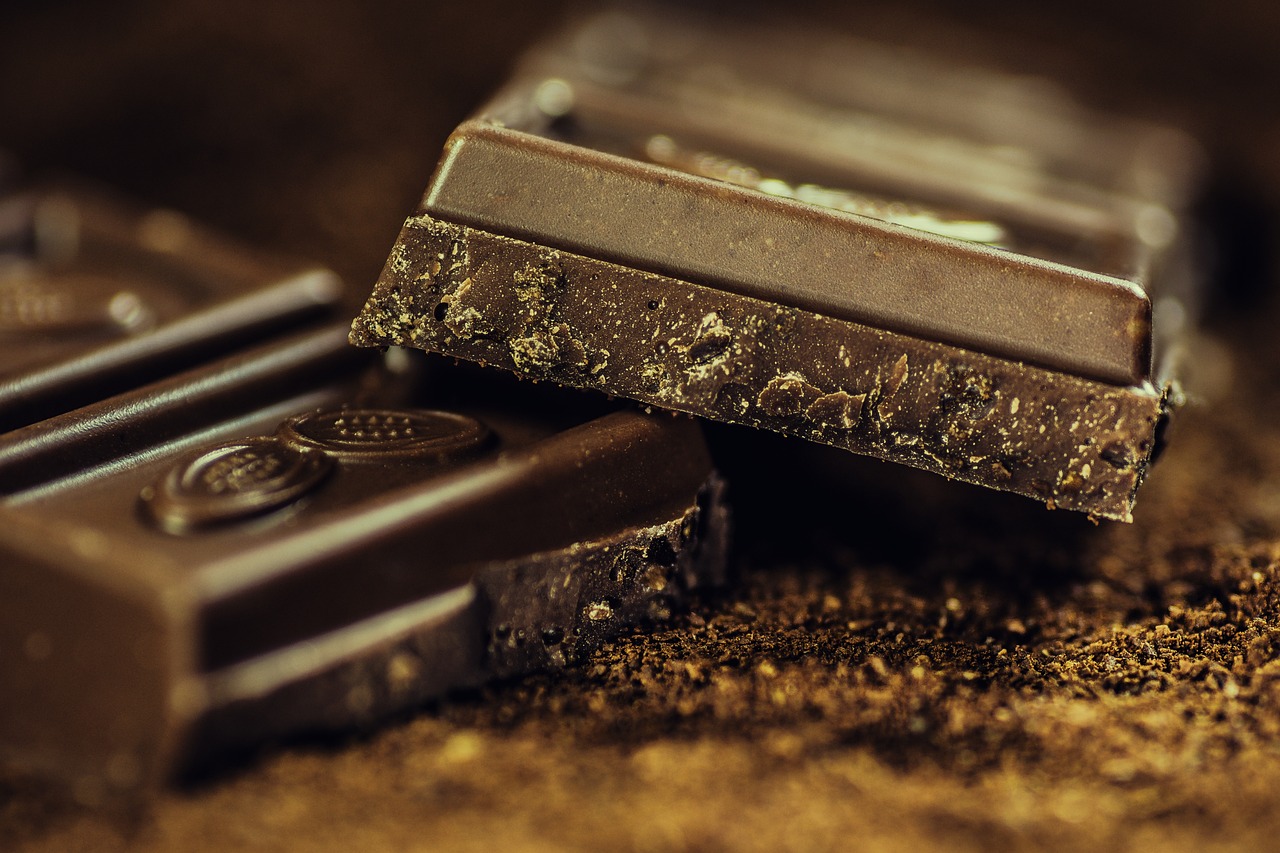 Image by Alexander Stein from Pixabay
Image by Alexander Stein from Pixabay
2. Grapes and Raisins
Though tiny and seemingly harmless, grapes and raisins can cause kidney failure in dogs. The exact substance that causes this reaction is still unknown, but the effects are clear and can be acute. Symptoms of toxicity include vomiting, lethargy, and depression. It's best to keep these fruits far out of reach of your canine companion.
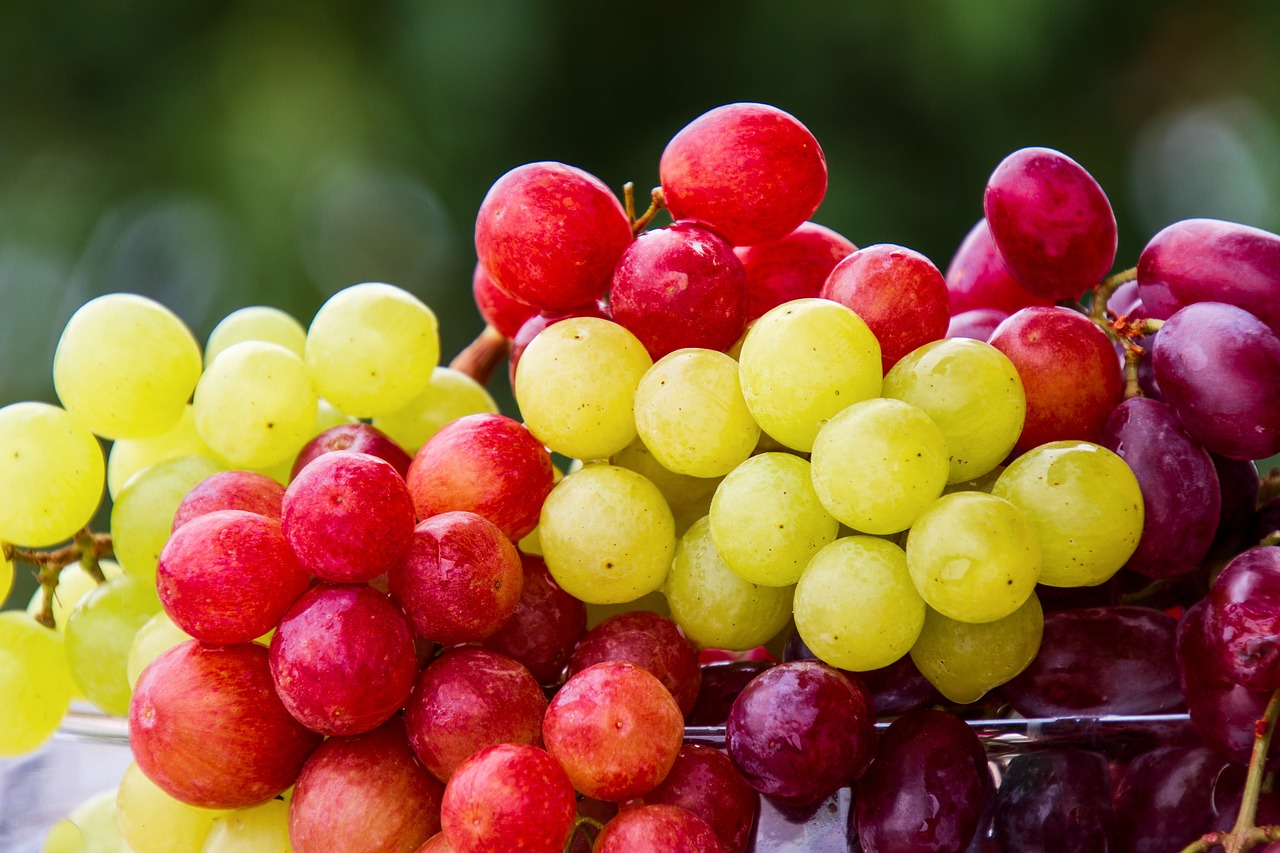 Image by Nicky ❤️🌿🐞🌿❤️ from Pixabay
Image by Nicky ❤️🌿🐞🌿❤️ from Pixabay
3. Xylitol
Xylitol is a sugar substitute found in many sugar-free products, such as gum, candy, and some peanut butters. In dogs, xylitol can lead to a rapid release of insulin, causing hypoglycemia (low blood sugar), which can be life-threatening. Symptoms of xylitol poisoning include vomiting, coordination problems, and lethargy. In severe cases, it can lead to liver failure.
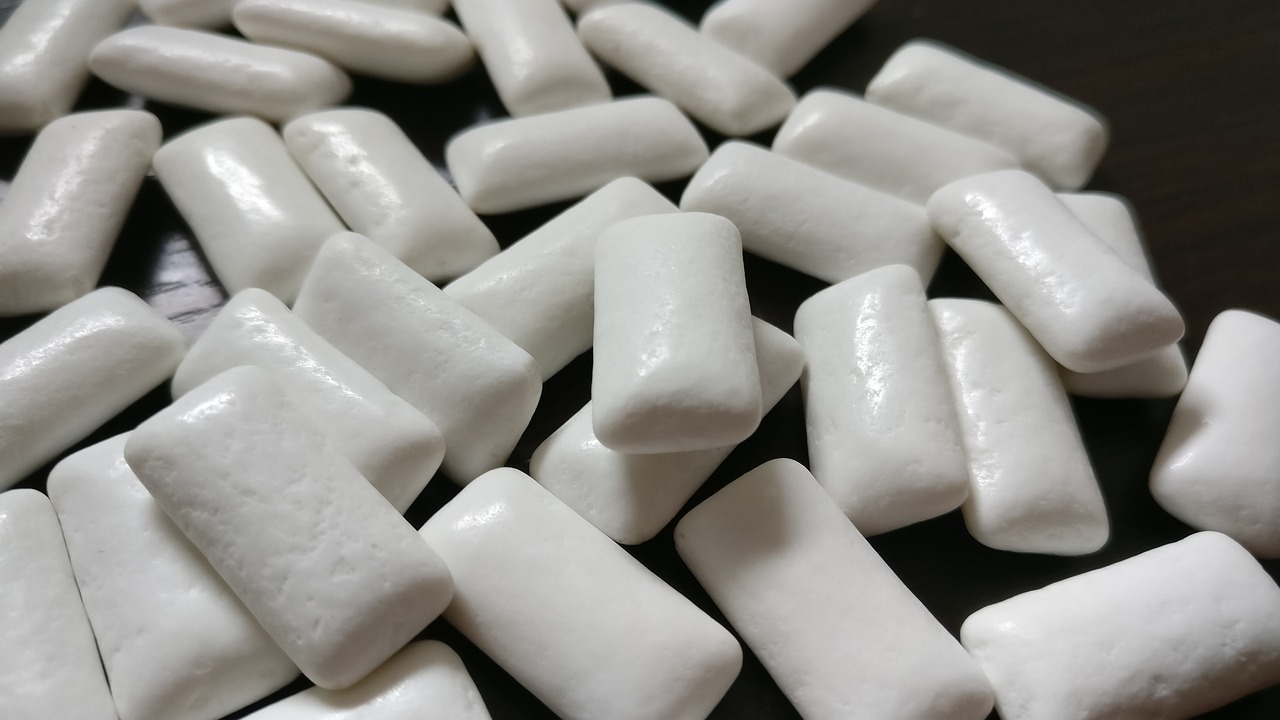 Image by davidgaigg from Pixabay
Image by davidgaigg from Pixabay
4. Onions and Garlic
Both onions and garlic, along with shallots and leeks, are part of the Allium family and are toxic to dogs. They can cause gastrointestinal irritation and could lead to red blood cell damage and anemia. Symptoms of poisoning might not appear immediately but can include vomiting, weakness, and breathing problems.
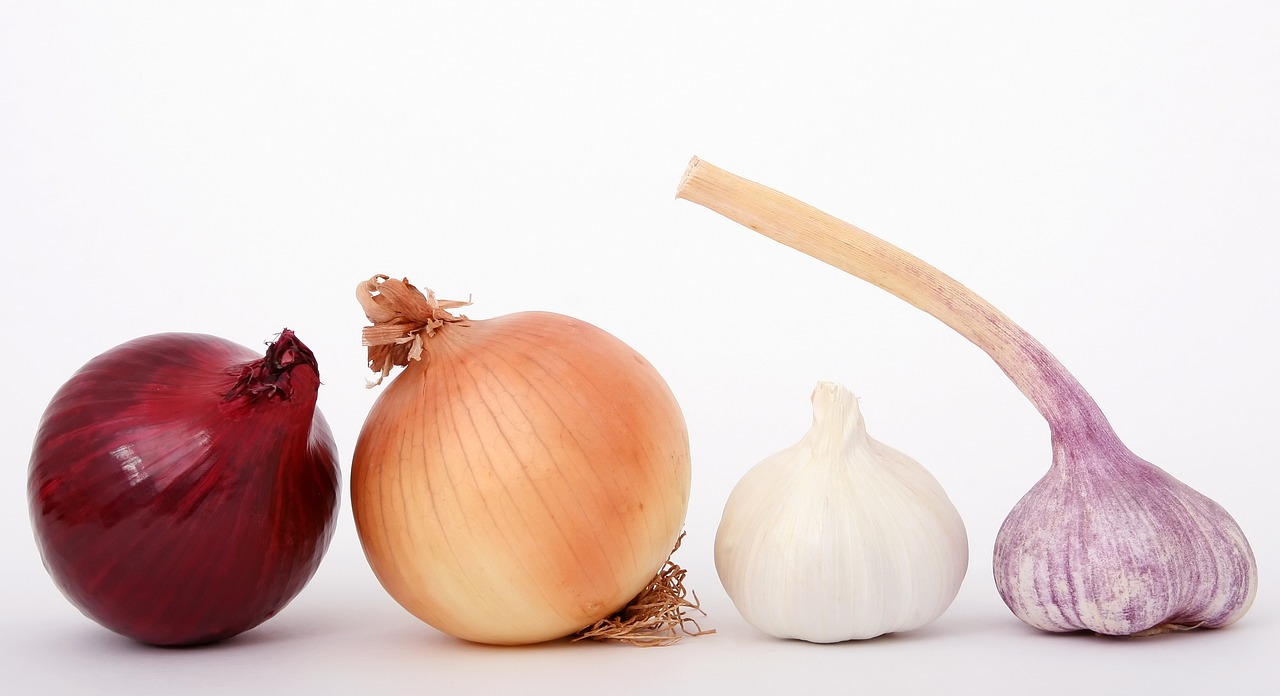 Image by Robert Owen-Wahl from Pixabay
Image by Robert Owen-Wahl from Pixabay
5. Avocado
Avocado contains persin, a fungicidal toxin that can cause health issues in many animals, including dogs. While it's more dangerous to birds and large animals, dogs consuming avocado can experience vomiting and diarrhea. The bigger risk is the avocado pit, which can cause choking or a blockage in the digestive tract.
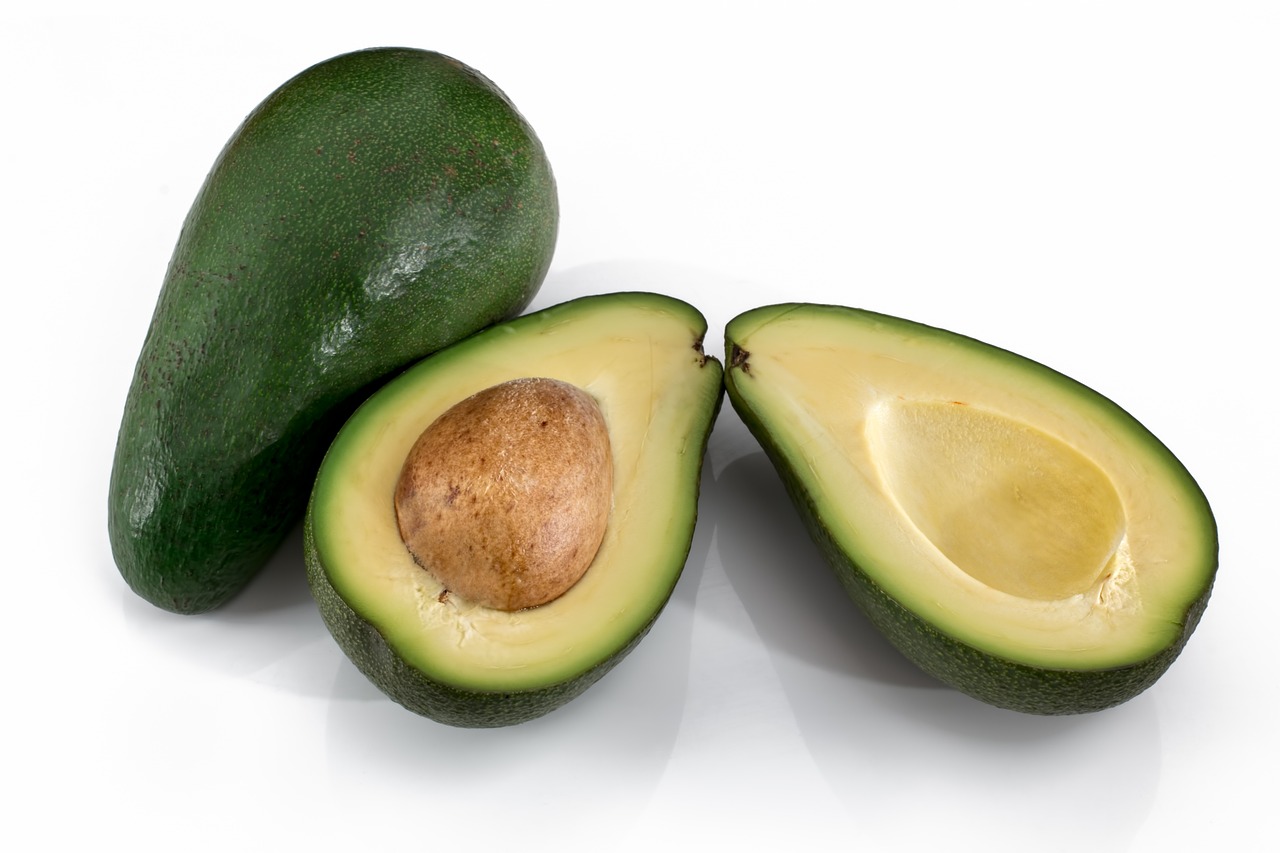 Image by Steve Buissinne from Pixabay
Image by Steve Buissinne from Pixabay
6. Alcohol
Alcohol and foods containing alcohol can be very harmful to dogs. Even small amounts can cause ethanol poisoning. This leads to symptoms such as vomiting, diarrhea, central nervous system depression, difficulty breathing, and tremors. In severe cases, alcohol ingestion can result in coma or death.
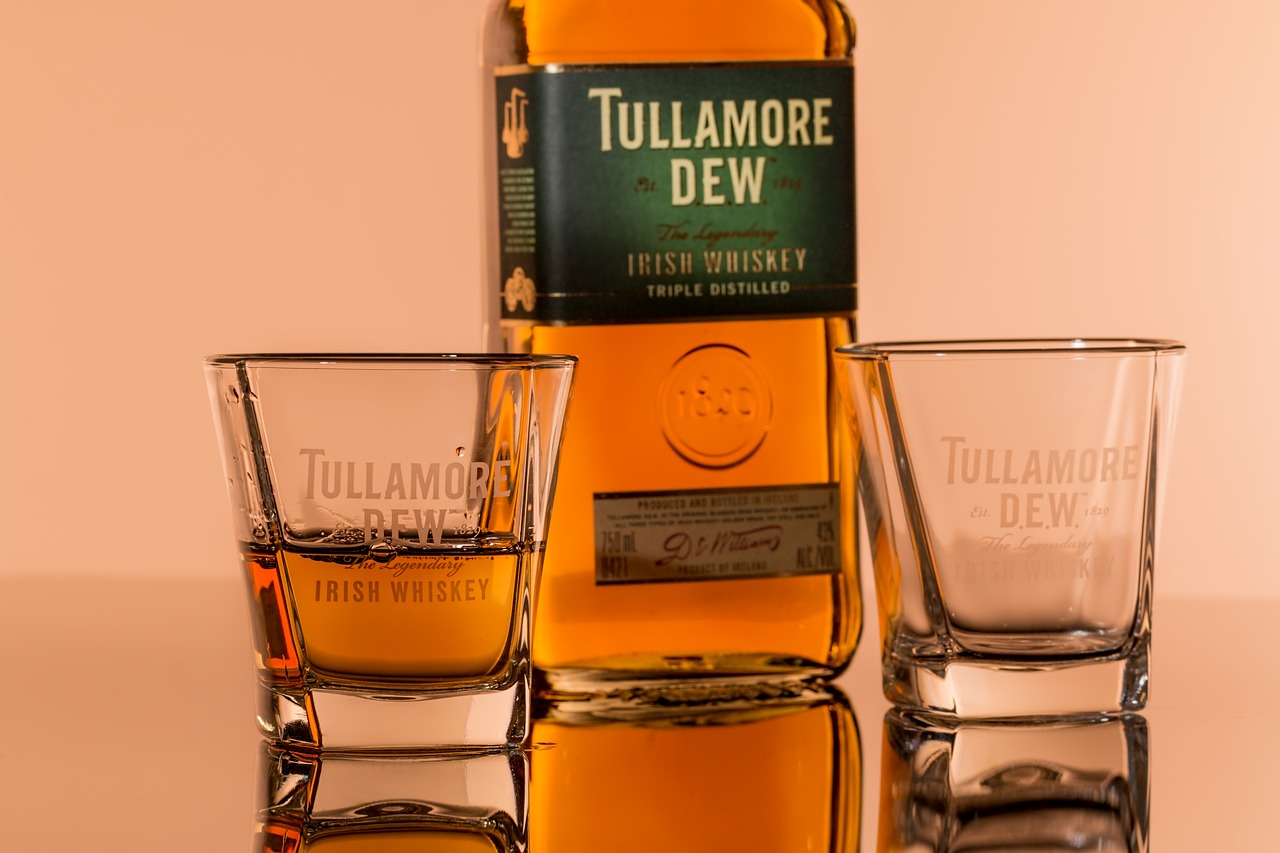 Image by Steve Buissinne from Pixabay
Image by Steve Buissinne from Pixabay
7. Caffeine
Caffeine is another stimulant that dogs should avoid. Found in coffee, tea, soda, and energy drinks, caffeine can cause similar symptoms to those seen with chocolate poisoning, including restlessness, rapid breathing, heart palpitations, and muscle tremors.
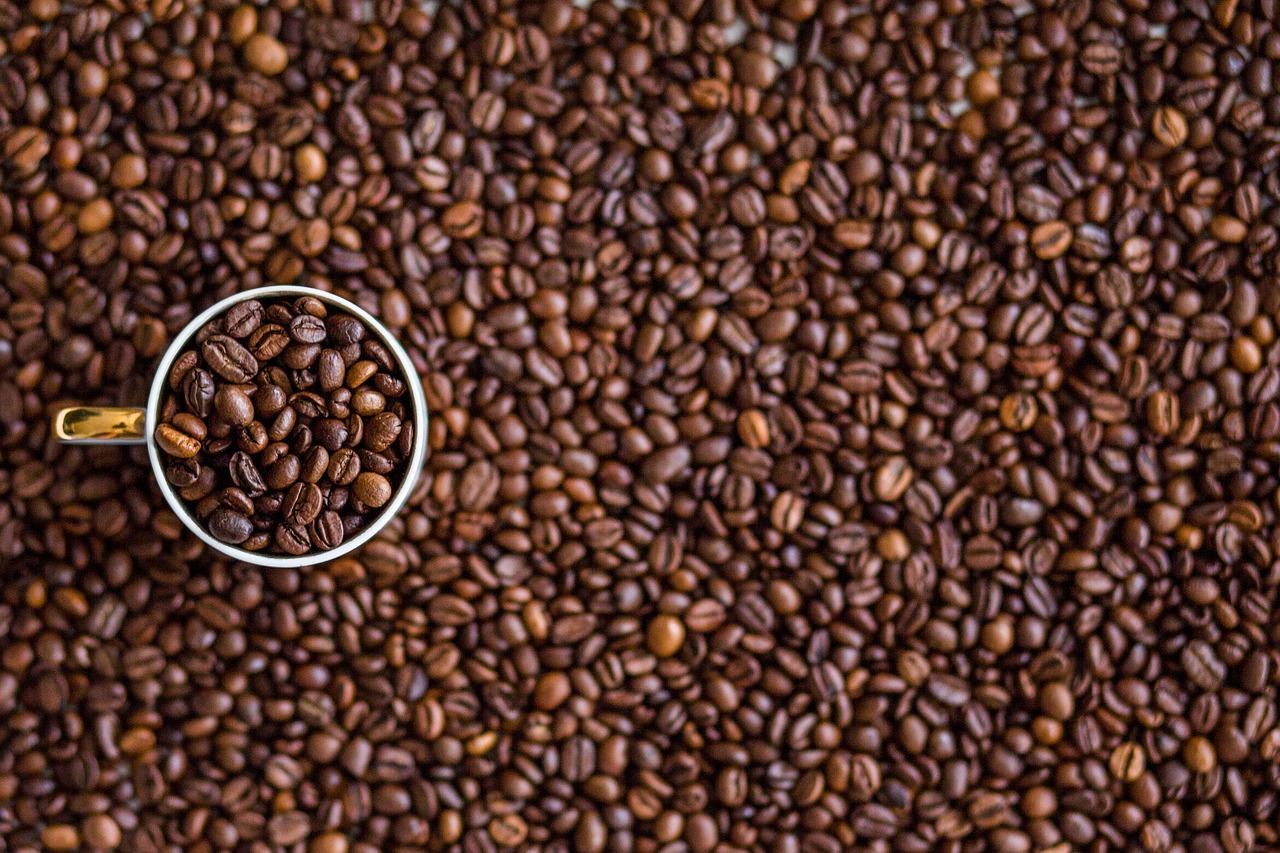 Image by Negative-Space from Pixabay
Image by Negative-Space from Pixabay
8. Macadamia Nuts
Macadamia nuts are toxic to dogs and can cause a range of symptoms, including weakness, depression, vomiting, tremors, and hyperthermia. Symptoms usually appear within 12 hours of ingestion and can last 24 to 48 hours. While the exact reason for their toxicity is unknown, it's clear that these nuts should be avoided.
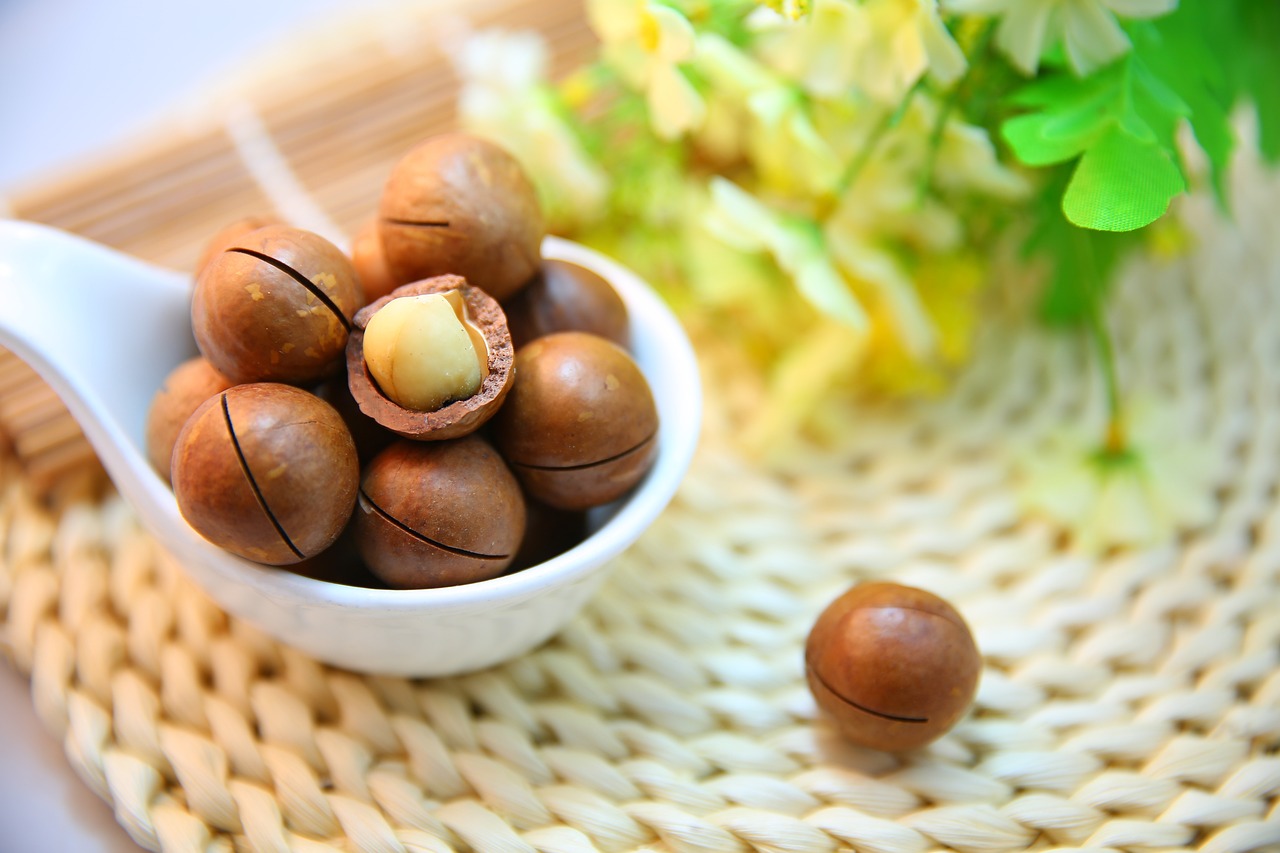 Image by sunnysun0804 from Pixabay
Image by sunnysun0804 from Pixabay
9. Yeast Dough
Raw yeast dough is dangerous for dogs as it can expand in their stomachs, causing pain and potentially leading to gastric dilatation-volvulus or "bloat," which is life-threatening. Additionally, as the yeast ferments the dough to make it rise, it produces alcohol, which can lead to alcohol poisoning.
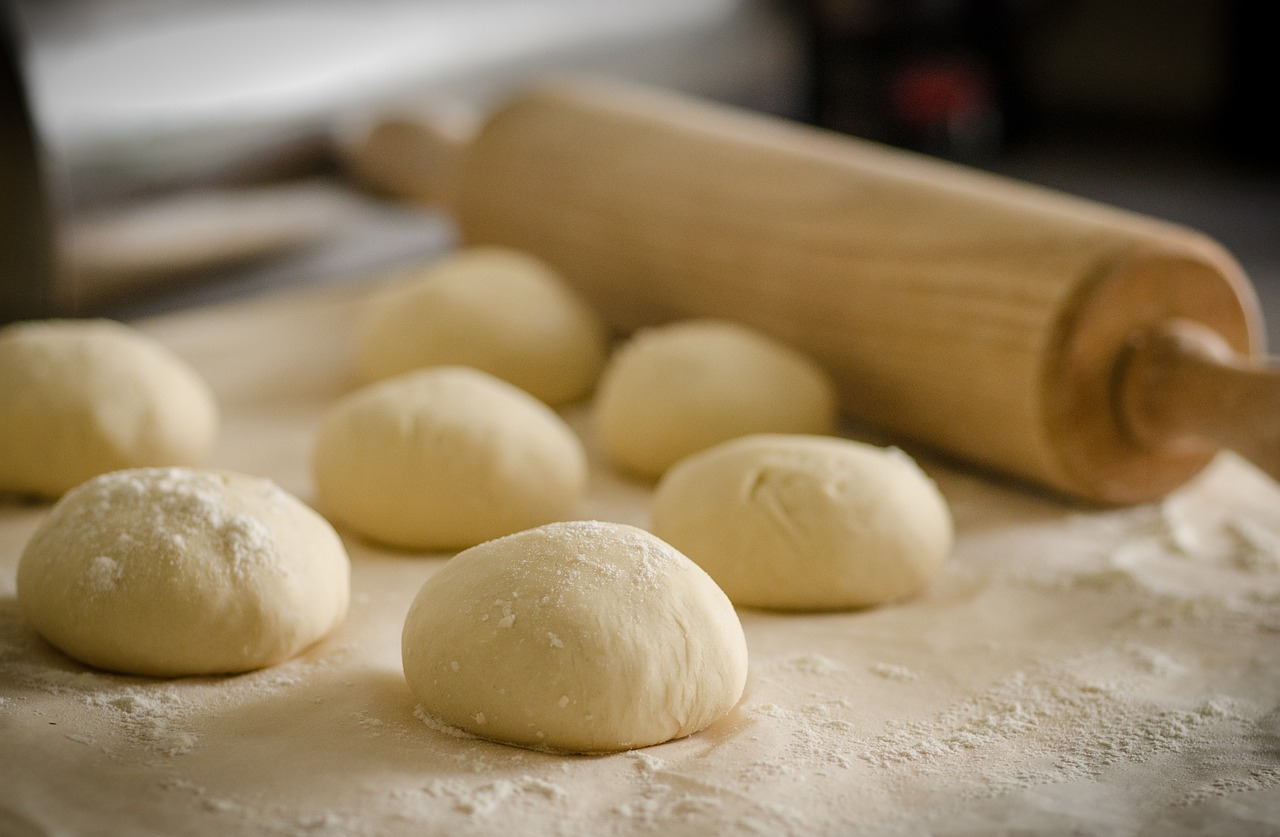 Image by Rudy and Peter Skitterians from Pixabay
Image by Rudy and Peter Skitterians from Pixabay
10. Bones
While it may seem natural to give dogs bones, cooked bones are a definite no. They can splinter and cause choking or seriously damage the dog's mouth, throat, or intestines. Even large bones can be problematic as dogs can break teeth on them or suffer from an intestinal blockage. Stick to vet-approved chew toys instead.
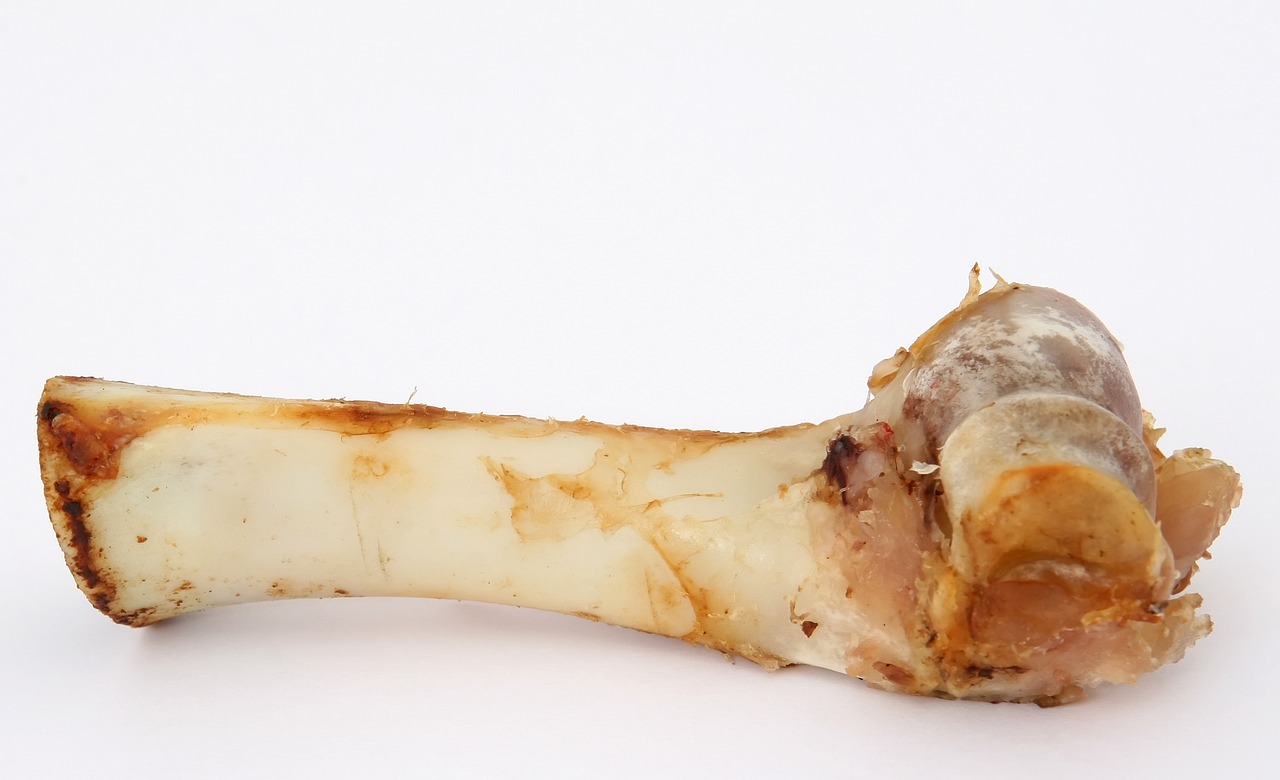 Image by Robert Owen-Wahl from Pixabay
Image by Robert Owen-Wahl from Pixabay
When it comes to treating our beloved dogs, it's always a pleasure to see their tails wag with excitement. But as responsible pet parents, it's essential to ensure that the treats we offer are not only delicious but also safe and healthy. Fortunately, there are plenty of human foods that dogs can enjoy without harm, adding variety and nutritional benefits to their diet.
1. Carrots
Carrots are a fantastic treat for dogs, offering a crunchy, satisfying snack that's low in calories and high in fiber and vitamins, particularly vitamin A. They can help maintain good dental health by acting as a natural chew toy. Raw or cooked, carrots are a healthy addition to your dog's diet, just be sure to cut them into bite-size pieces to prevent choking.
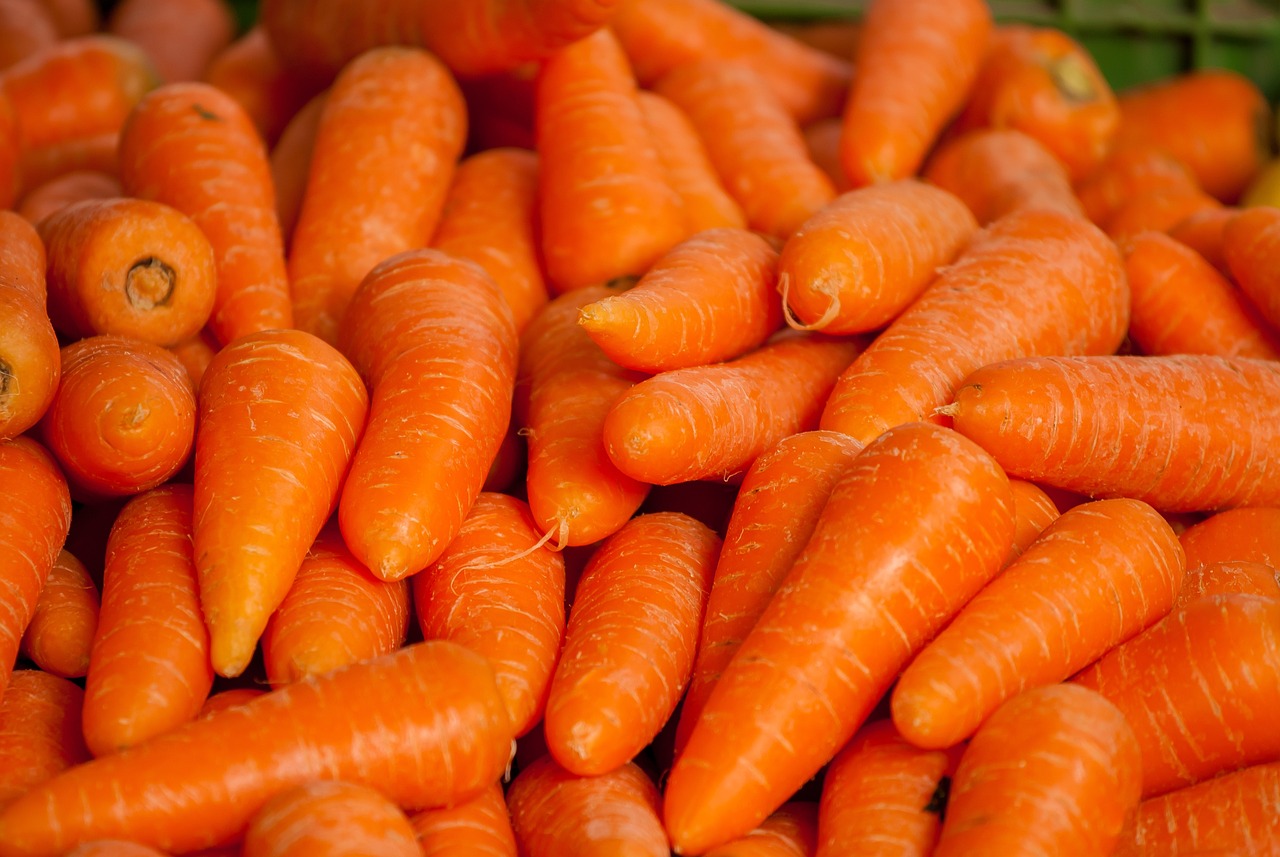 Image by Yerson Retamal from Pixabay
Image by Yerson Retamal from Pixabay
2. Apples
Apples are a sweet treat that's safe for dogs, packed with vitamins A and C, as well as fiber, which is beneficial for digestion. They also help to clean residue off a dog's teeth, which helps to freshen breath. Remove the seeds and core before giving them to your dog, as seeds can be harmful.
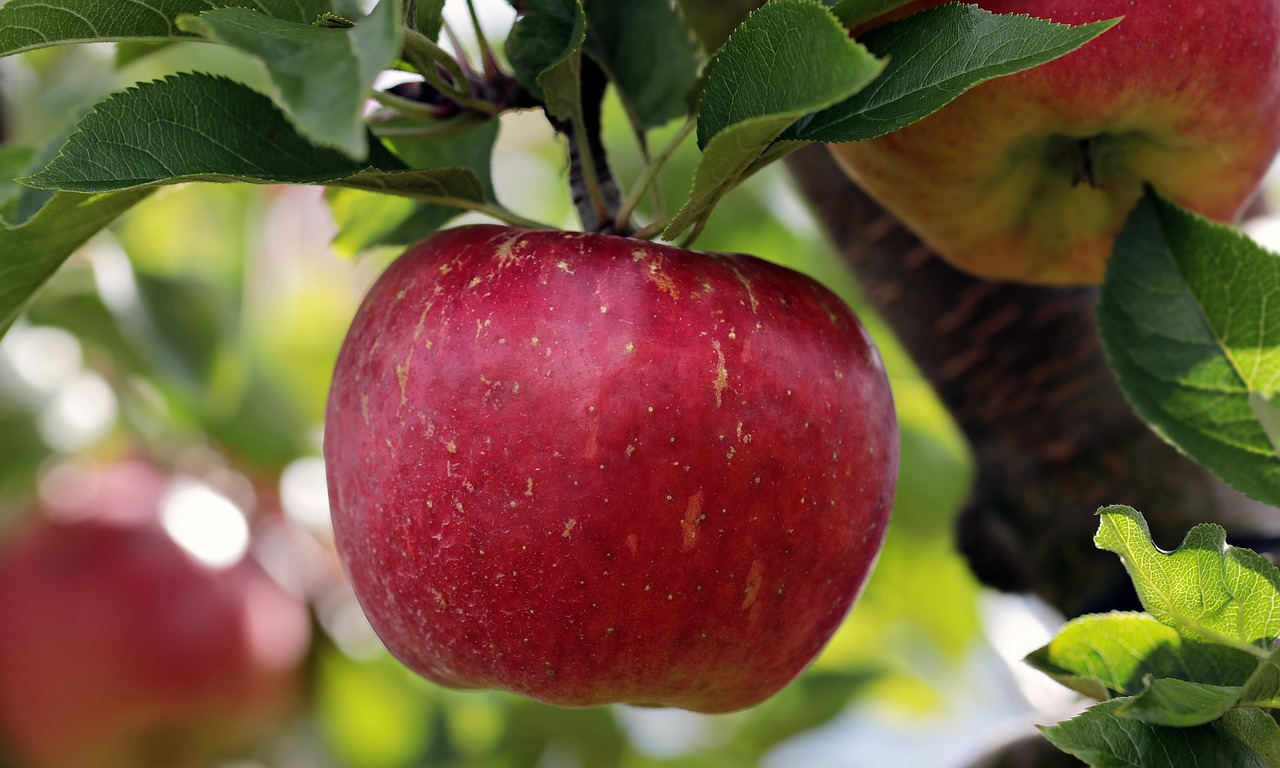 Image by NoName_13 from Pixabay
Image by NoName_13 from Pixabay
3. Peanut Butter
Peanut butter, especially unsalted and without added sugar or sweeteners, is a great source of protein, healthy fats, vitamins B and E, and niacin for dogs. It's an excellent treat for stuffing into toys or for medication disguise. Ensure it's xylitol-free, as xylitol is toxic to dogs.
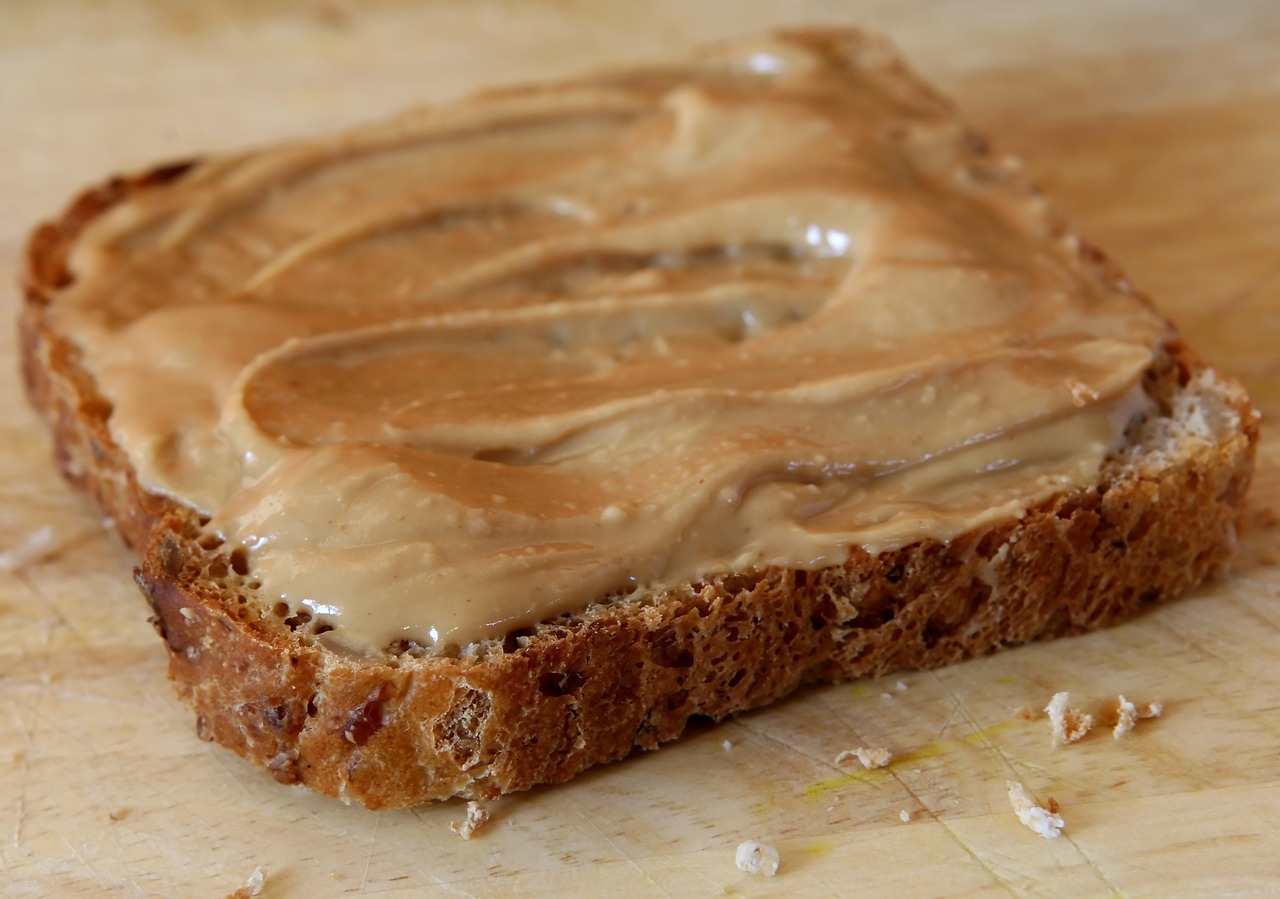 Image by Robert Owen-Wahl from Pixabay
Image by Robert Owen-Wahl from Pixabay
4. Chicken
Cooked chicken is a wonderful source of lean protein for dogs, which can be especially helpful if your dog is feeling a bit under the weather and has a reduced appetite. It should be served plain, without any onions, garlic, or seasoning, and ensure that all bones are removed to avoid any risk.
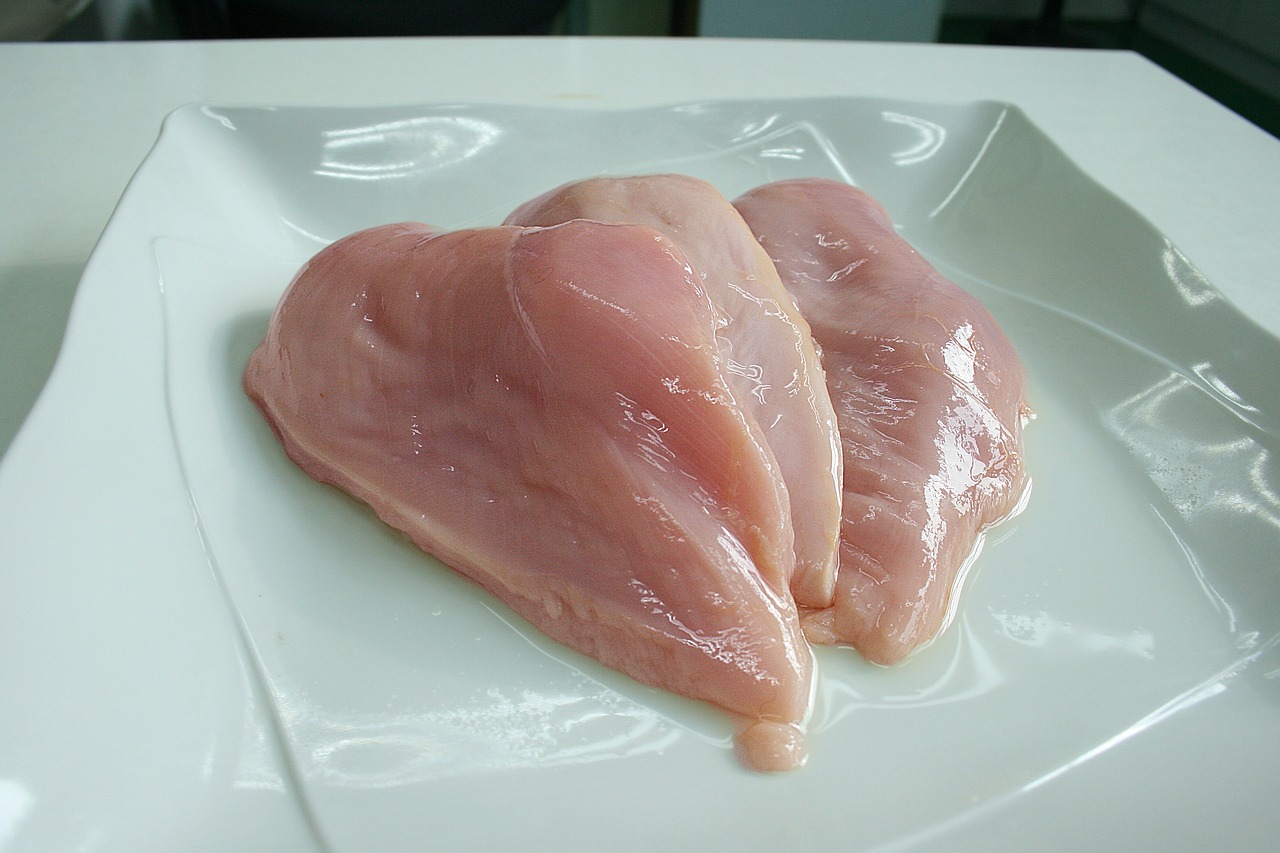 Image by Siwon Lee from Pixabay
Image by Siwon Lee from Pixabay
5. Salmon
Salmon is rich in omega-3 fatty acids, which can improve your dog's skin and coat health, support their immune system, and reduce inflammation. It should be fully cooked and served plain, as raw salmon can contain parasites harmful to dogs.
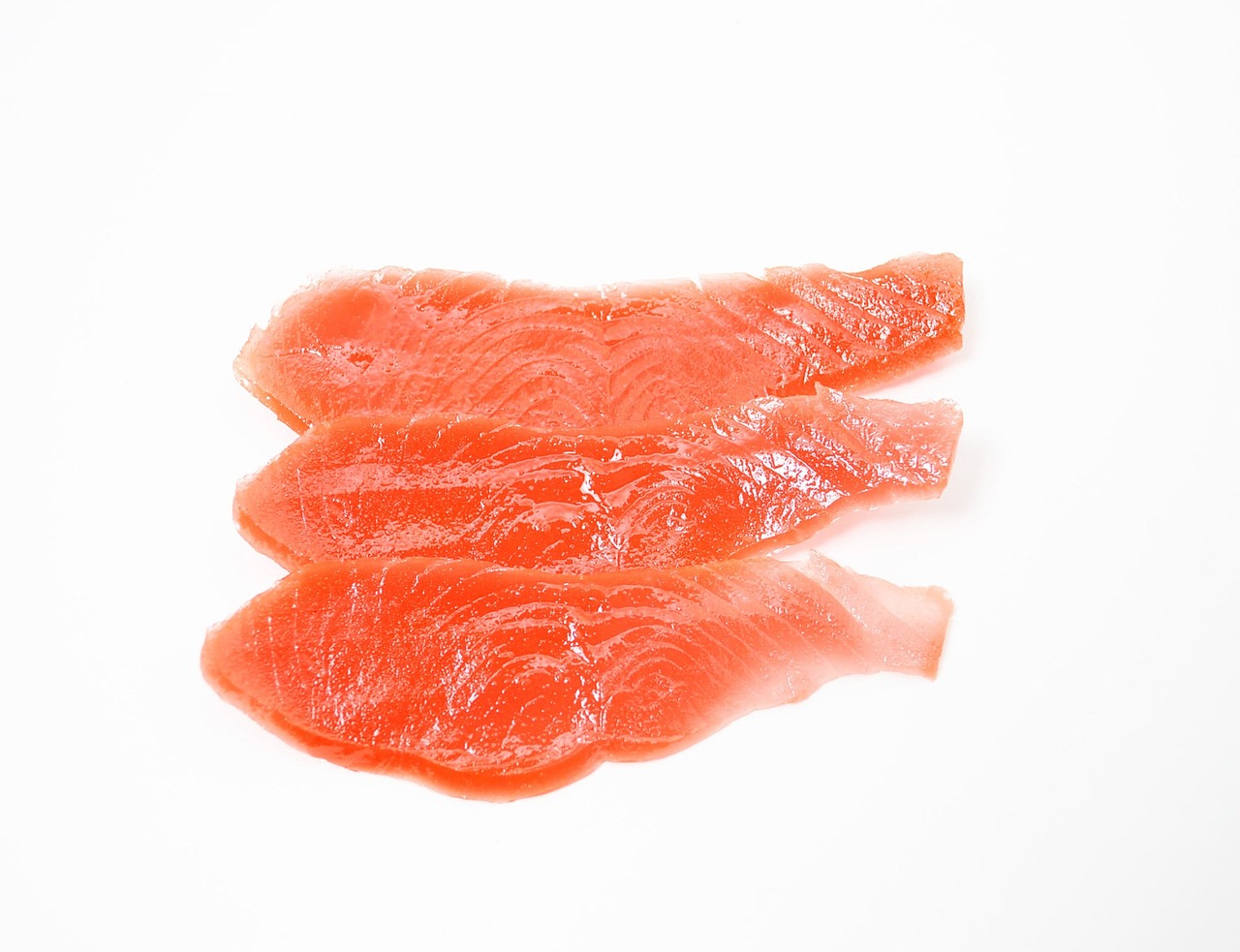 Image by PublicDomainPictures from Pixabay
Image by PublicDomainPictures from Pixabay
6. Blueberries
Blueberries are safe for dogs to eat and are a superfood, rich in antioxidants, fiber, and vitamins C and K. They're great for older dogs, as the antioxidants can help reduce the effects of aging. Serve them fresh or frozen for a refreshing treat.
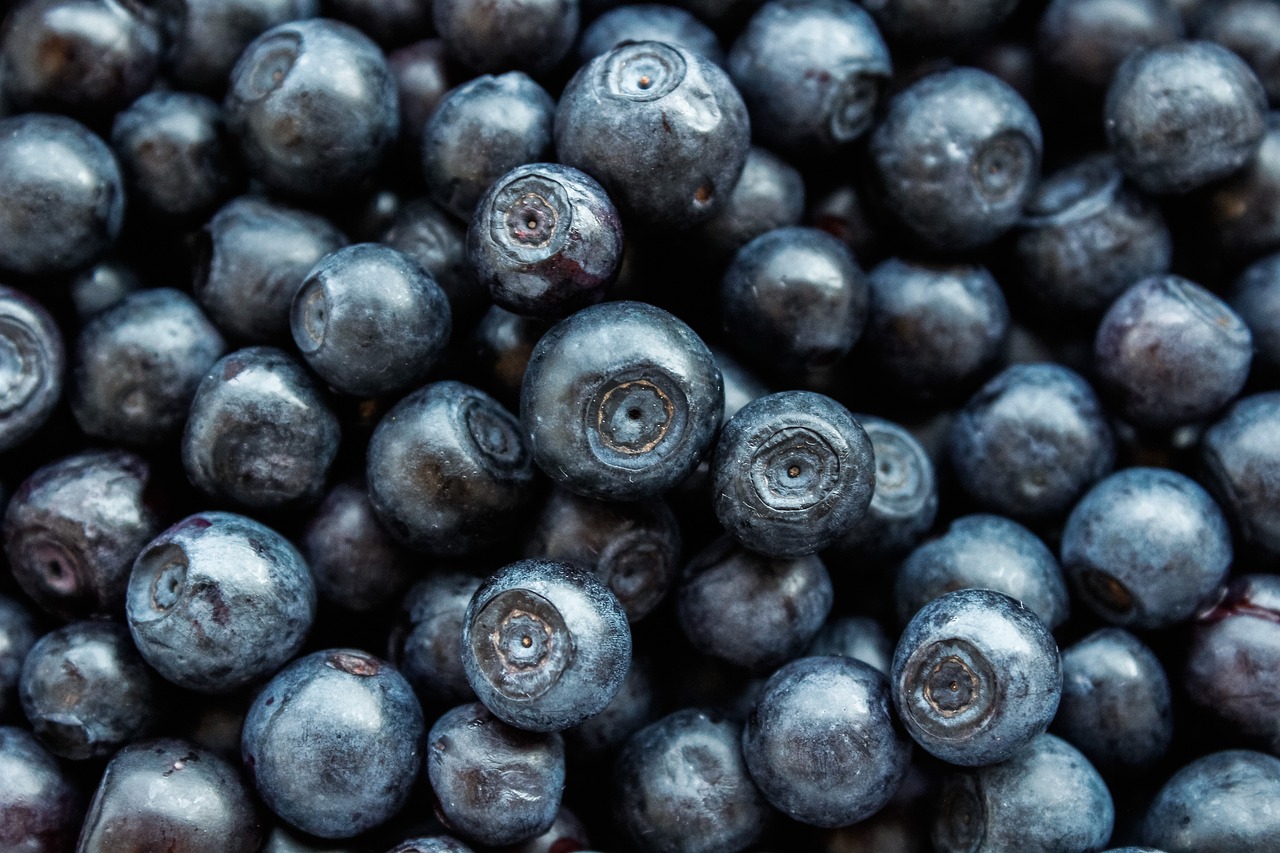 Image by Meadowphoto from Pixabay
Image by Meadowphoto from Pixabay
7. Sweet Potatoes
Sweet potatoes are a great source of dietary fiber, vitamin B6, vitamin C, and beta-carotene. They can be served cooked and mashed or dried as a chewy treat, but without any added sugars or spices. Ensure they're cooked thoroughly to make them easier to digest.
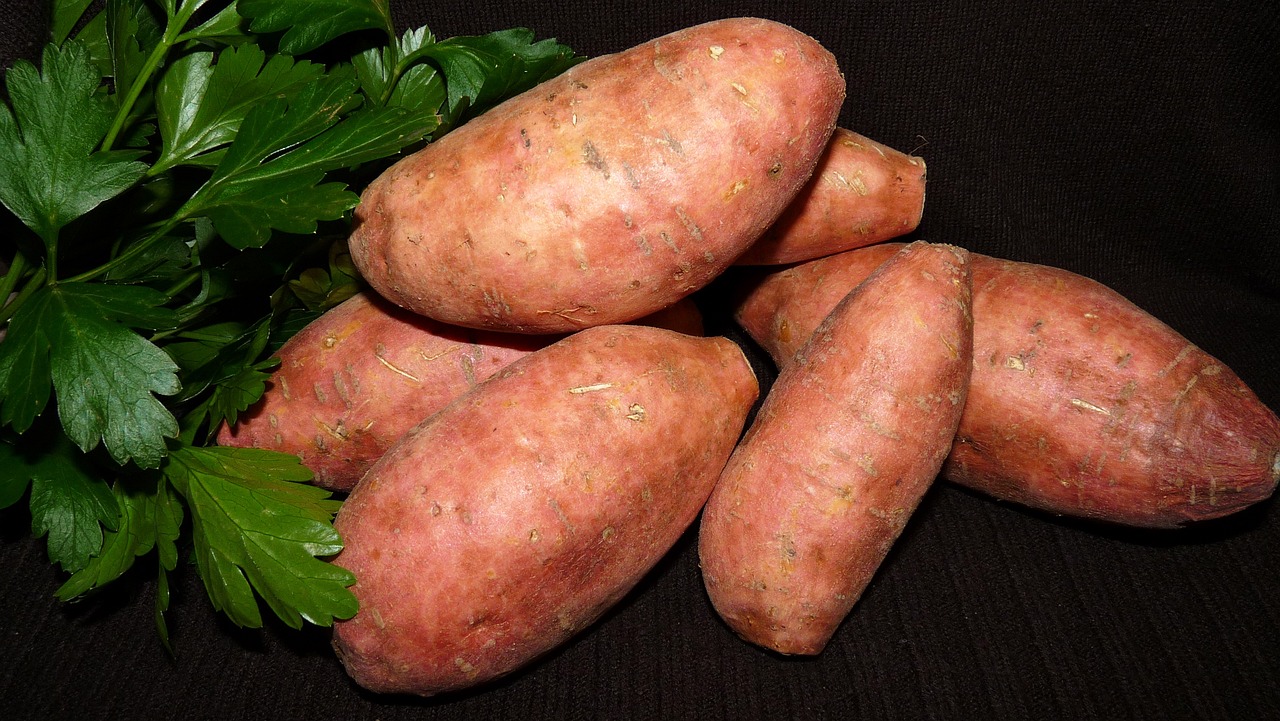 Image by Beverly Buckley from Pixabay
Image by Beverly Buckley from Pixabay
8. Watermelon
Watermelon is a hydrating treat, perfect for hot days, as it's over 90% water. It's also low in calories and packed with vitamins A, B6, and C, and potassium. Remove all seeds and the rind to prevent choking or gastrointestinal blockage.
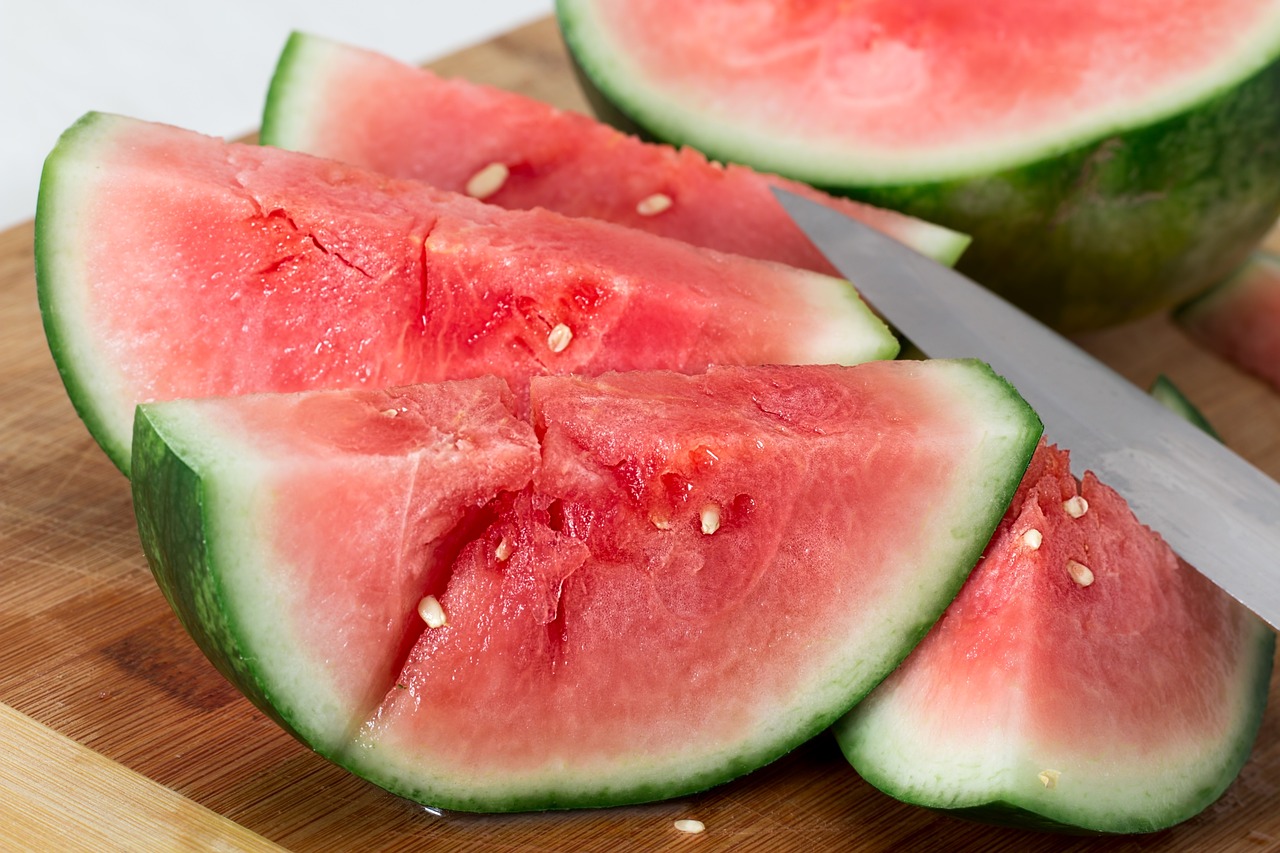 Image by Steve Buissinne from Pixabay
Image by Steve Buissinne from Pixabay
9. Pumpkin
Pumpkin is high in fiber and beta-carotene, which the body converts to vitamin A. It's great for a dog's digestion and can help with both diarrhea and constipation. Serve it to your dog plain, either fresh or canned, but ensure it's pure pumpkin and not pumpkin pie filling, which contains spices and sugar.
10. Green Beans
Green beans are a healthy snack for dogs, rich in vitamins C, K, and manganese, and low in calories. They can be served raw, steamed, or canned, as long as they're plain and without any added salt or seasoning.
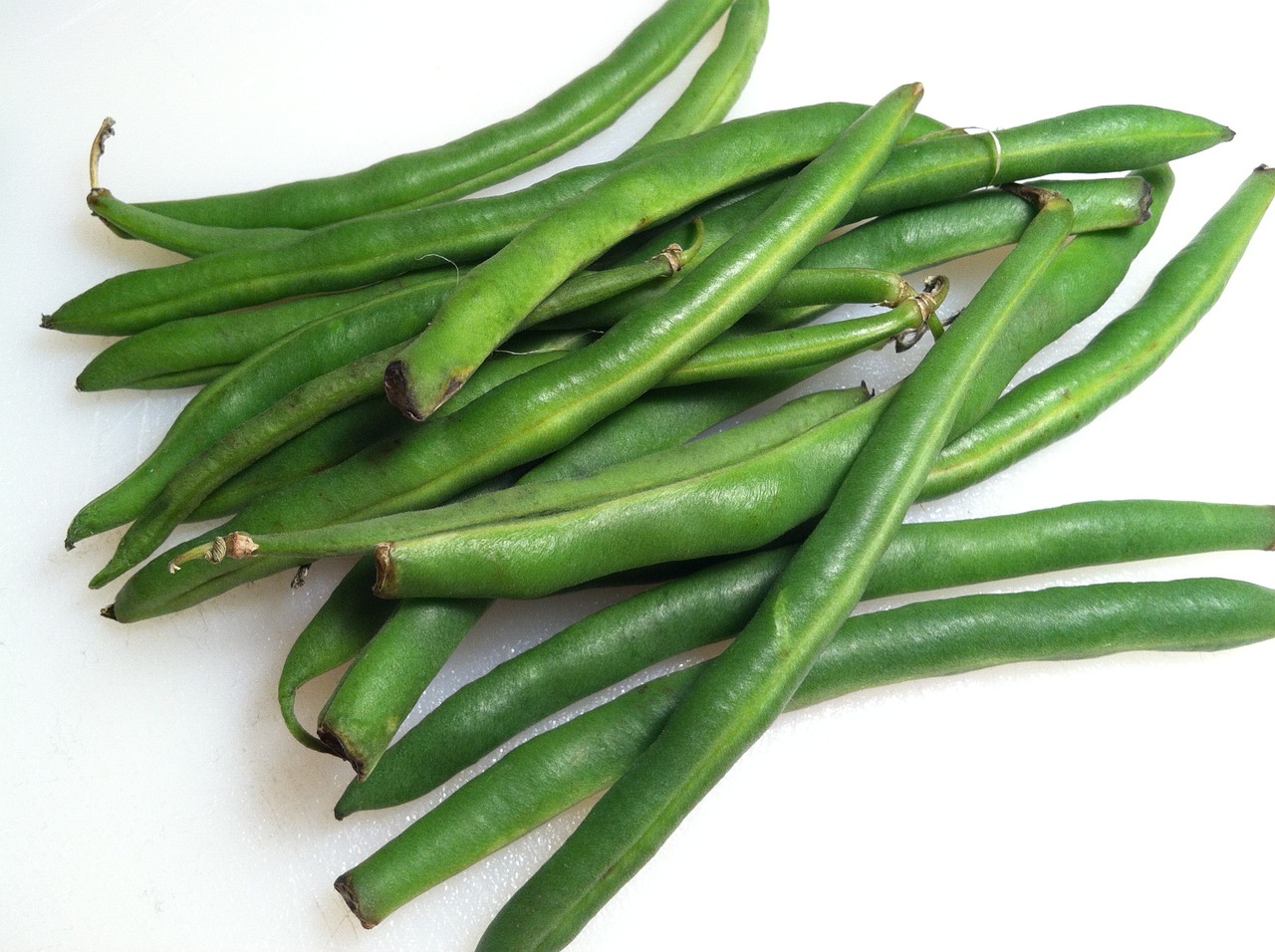 Image by young_amyc from Pixabay
Image by young_amyc from Pixabay
KEEP ON READING
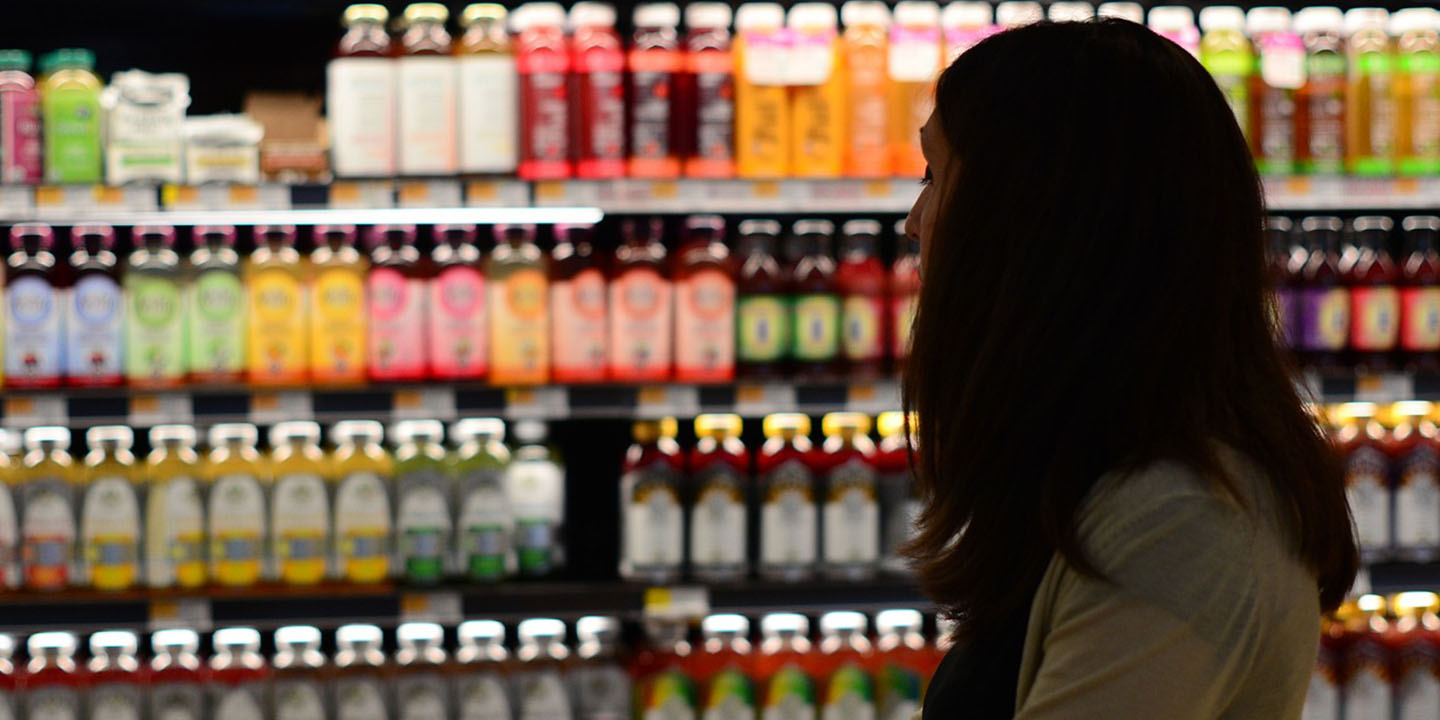
The 5 Most Consumed Foods in the Entire World



